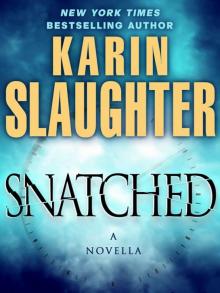- Home
Page 2
Page 2
 The Will Trent Series 5-Book Bundle
The Will Trent Series 5-Book Bundle Triptych2
Triptych2 Broken
Broken A Grant County Collection: Indelible, Faithless and Skin Privilege
A Grant County Collection: Indelible, Faithless and Skin Privilege The Will Trent Series 7-Book Bundle
The Will Trent Series 7-Book Bundle A Faint Cold Fear
A Faint Cold Fear Last Breath
Last Breath Three Twisted Stories: Go Deep, Necessary Women, Remmy Rothstein Toes the Line
Three Twisted Stories: Go Deep, Necessary Women, Remmy Rothstein Toes the Line Pretty Girls
Pretty Girls Cop Town
Cop Town Unseen
Unseen Cold Cold Heart
Cold Cold Heart Blonde Hair, Blue Eyes
Blonde Hair, Blue Eyes Kisscut
Kisscut Martin Misunderstood
Martin Misunderstood The Kept Woman
The Kept Woman Indelible
Indelible Pieces of Her
Pieces of Her The Last Widow: The latest new 2019 crime thriller from the No. 1 Sunday Times bestselling author
The Last Widow: The latest new 2019 crime thriller from the No. 1 Sunday Times bestselling author Faithless
Faithless Beyond Reach
Beyond Reach False Witness
False Witness Thorn in My Side
Thorn in My Side Genesis
Genesis Like a Charm
Like a Charm Fallen
Fallen Triptych
Triptych The Unremarkable Heart and Other Stories
The Unremarkable Heart and Other Stories Criminal
Criminal Snatched
Snatched The Unremarkable Heart
The Unremarkable Heart The Silent Wife: From the No. 1 Sunday Times bestselling author comes a gripping new crime thriller (Will Trent Series, Book 10)
The Silent Wife: From the No. 1 Sunday Times bestselling author comes a gripping new crime thriller (Will Trent Series, Book 10) Cleaning the Gold
Cleaning the Gold![[Georgia 01] Genesis (aka Undone) Read online](http://i1.bookreadfree.com/i/03/24/georgia_01_genesis_aka_undone_preview.jpg) [Georgia 01] Genesis (aka Undone)
[Georgia 01] Genesis (aka Undone) Snatched: A Novella (Kindle Single)
Snatched: A Novella (Kindle Single) Fallen wt-5
Fallen wt-5 Three Twisted Stories
Three Twisted Stories![[Grant County 05] Faithless Read online](http://i1.bookreadfree.com/i/03/26/grant_county_05_faithless_preview.jpg) [Grant County 05] Faithless
[Grant County 05] Faithless Will Trent07 - Unseen
Will Trent07 - Unseen A Grant County Collection
A Grant County Collection Thorn in My Side (Kindle Single)
Thorn in My Side (Kindle Single) Skin Privilege
Skin Privilege The Kept Woman (Will Trent 8)
The Kept Woman (Will Trent 8) Pretty Girls: A Novel
Pretty Girls: A Novel A Faint Cold Fear gc-3
A Faint Cold Fear gc-3 Cop Town: A Novel
Cop Town: A Novel